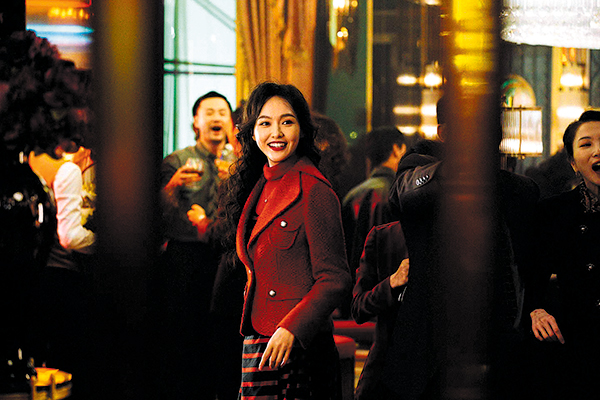

Normally, a writer finishes the script before the shoot and pays limited visits to the set. However, this norm completely changed while working with Wong, who is known for his deliberate filming pace, for rarely allowing actors to read the entire script before shooting, and for making frequent revisions on set.
"I believe that most of us working with Wong for the first time were curious and nervous to be part of the project. Personally, the scriptwriting process, which lasted almost five years, felt like climbing a mountain. You couldn't turn your head, otherwise you'd feel scared," says Qin.
For the first time in her scriptwriting career, Qin moved to live alongside the cast and crew on the set in suburban Shanghai during the three-year shoot between 2020 and 2022. She wrote temporary revisions to the script every night, per Wong's request, in preparation for the next day's filming.
Flashing through her mind as some of the most difficult and challenging moments, Qin recalls that she once stayed on the set until 2 am and walked alone on an empty street to deliver the revised script to Wong.
Despite the high-intensity schedule, Qin says she learned a lot from the prestigious director. Wong, who is energetic and a stickler for details, did a great deal of preparation and often slept only three to four hours a day.
"Wong Kar-wai is a bit like a babysitter. He read many books and documents about Shanghai in the early 1990s, enough to fill the shelves on four walls. He tagged sections in the books, to remind us to read the most important content and help us all, including the prop, costume and set designers, develop a better understanding," Qin says.